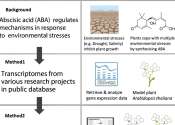Ultra-resilient flexible sensors break new ground in pressure detection
In recent advancements, flexible pressure sensors have been developed to mimic human skin's sensitivity, significantly benefiting fields like interactive technologies, health monitoring, and robotics. These innovations leverage ...









